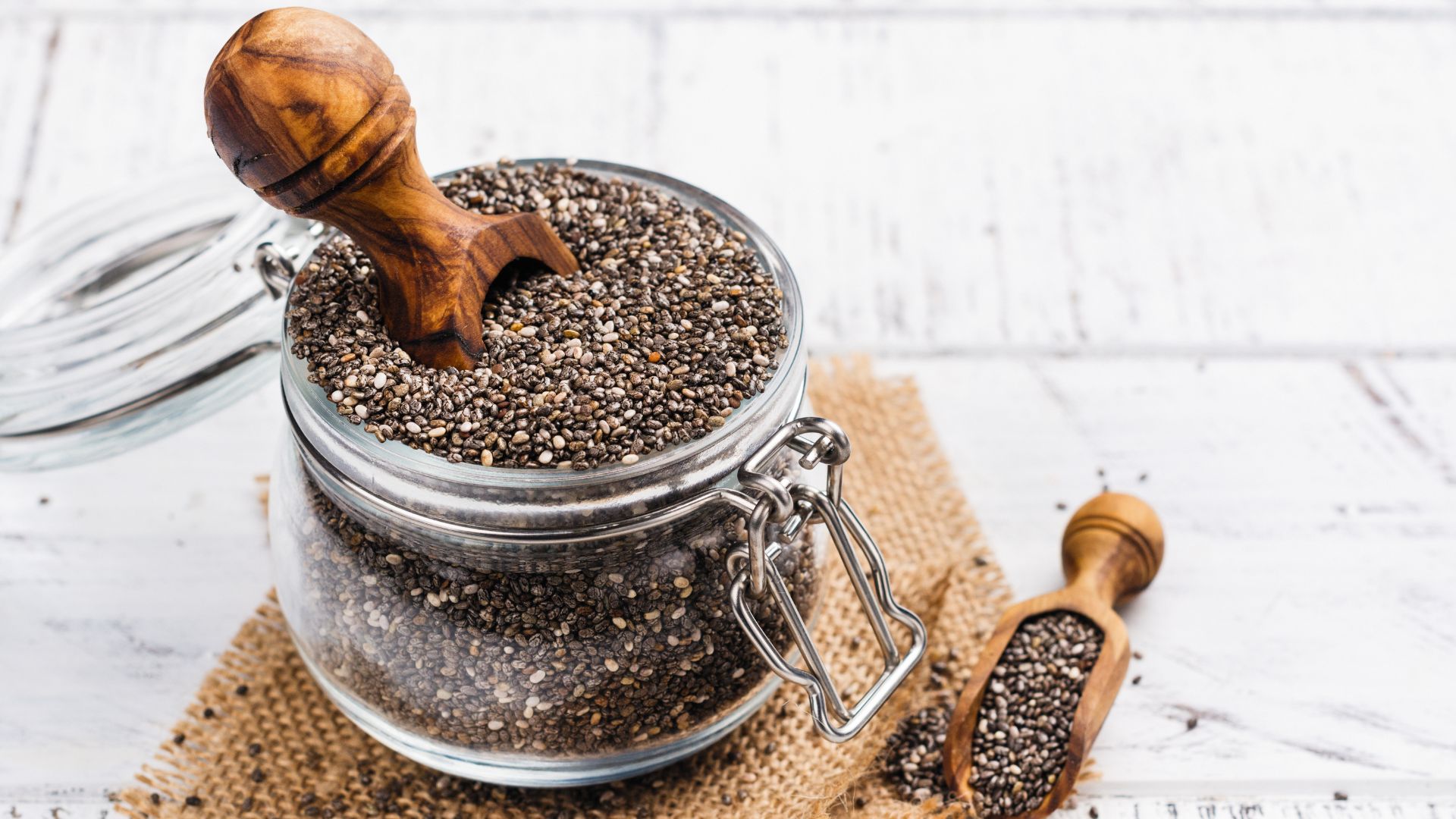
Chia seeds, harvested from the plant Salvia hispanica, are tiny but mighty seeds that have gained widespread recognition as a superfood. They were a staple in the diets of ancient civilizations like the Aztecs and Mayans, who prized them for their energy-boosting properties. Today, chia seeds are celebrated for their rich nutrient profile and versatile culinary uses. This article explores the nutritional benefits of chia seeds and their potential impact on health.
Table of Contents
1. High in Omega-3 Fatty Acids
Chia seeds are one of the richest plant-based sources of omega-3 fatty acids, particularly alpha-linolenic acid (ALA). Omega-3 fatty acids are essential fats that play a crucial role in overall health.
Health Benefits:
- Cardiovascular Health: Omega-3s are known for their heart-protective effects, including reducing inflammation, lowering blood pressure, and decreasing the risk of heart disease. They also help lower triglyceride levels and may reduce the risk of arrhythmias.
- Brain Function: Omega-3s are essential for brain health, supporting cognitive function and reducing the risk of cognitive decline and neurodegenerative diseases.
2. Excellent Source of Dietary Fiber
Its are remarkably high in dietary fiber, providing about 10 grams per ounce (28 grams). They contain both soluble and insoluble fiber, each offering unique health benefits.
Health Benefits:
- Digestive Health: The high fiber content aids digestion by promoting regular bowel movements and preventing constipation. The soluble fiber forms a gel-like substance in the digestive tract, which can help slow down the absorption of carbohydrates and sugars, stabilizing blood sugar levels.
- Weight Management: The fiber in chia seeds promotes a feeling of fullness, reducing overall calorie intake and helping with weight management.
- Cholesterol Levels: Fiber can help lower LDL (bad) cholesterol levels, thus reducing the risk of cardiovascular diseases.
3. Rich in Antioxidants
Chia seeds contain a variety of antioxidants, including chlorogenic acid, caffeic acid, myricetin, quercetin, and kaempferol. These antioxidants help neutralize free radicals in the body, preventing oxidative stress and cellular damage.
Health Benefits:
- Cell Protection: Antioxidants protect cells from damage, which can reduce the risk of chronic diseases like cancer and heart disease.
- Anti-Aging: They help reduce inflammation and combat signs of aging, such as wrinkles and fine lines.
4. Excellent Source of Protein
Chia seeds are a good plant-based source of protein, providing all nine essential amino acids, making them a complete protein source. This is particularly beneficial for vegetarians and vegans.
Health Benefits:
- Muscle Growth and Repair: Protein is crucial for muscle repair and growth, making chia seeds a great addition to post-exercise meals.
- Satiety: Protein, along with fiber, helps promote a feeling of fullness, aiding in weight management.
5. Packed with Minerals
Chia seeds are rich in several essential minerals, including calcium, magnesium, phosphorus, and manganese. A single ounce of chia seeds provides 18% of the recommended daily intake (RDI) of calcium, 30% of manganese, 27% of phosphorus, and 30% of magnesium.
Health Benefits:
- Bone Health: Calcium and phosphorus are vital for maintaining strong bones and teeth. Chia seeds can be an important source of calcium, especially for those who do not consume dairy products.
- Metabolic Support: Magnesium plays a crucial role in over 300 enzymatic reactions in the body, including energy production and protein synthesis.
- Antioxidant Defense: Manganese is involved in the production of superoxide dismutase (SOD), an antioxidant enzyme that helps protect cells from damage.
6. Hydration Support
Chia seeds can absorb up to 12 times their weight in water, forming a gel-like substance. This hydrophilic property makes them useful for maintaining hydration, particularly during prolonged physical activity or in hot climates.
Health Benefits:
- Hydration: The gel-forming ability helps retain fluids and electrolytes, supporting hydration.
- Electrolyte Balance: Chia seeds provide essential electrolytes like potassium and magnesium, crucial for maintaining fluid balance in the body.
How to Incorporate Chia Seeds into Your Diet
Chia seeds are versatile and can be easily incorporated into various dishes. Here are some ways to enjoy them:
- Smoothies: Add a tablespoon of chia seeds to your smoothie for a nutrient boost.
- Puddings: Mix chia seeds with liquid (like almond milk) to create a chia pudding, a popular and nutritious dessert.
- Baking: Incorporate chia seeds into bread, muffins, or pancakes for added texture and nutrients.
- Toppings: Sprinkle chia seeds on yogurt, salads, or oatmeal for a crunchy texture.
Chia seeds are a nutrient-dense food that offers numerous health benefits. Their rich content of omega-3 fatty acids, dietary fiber, protein, antioxidants, and essential minerals make them a valuable addition to a healthy diet. Whether you're looking to improve heart health, support digestive function, or simply add more nutrients to your meals, chia seeds are a versatile and nutritious option.


